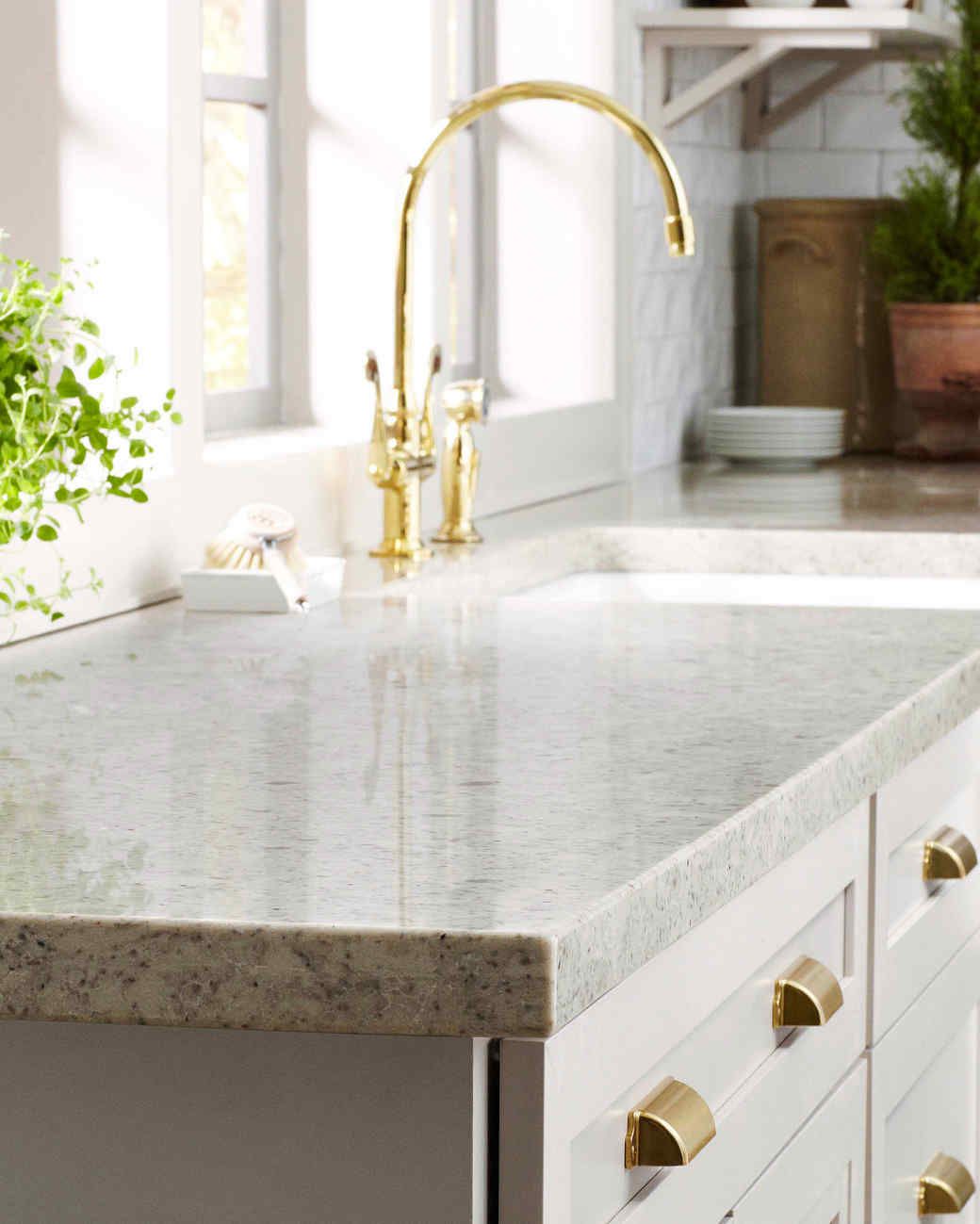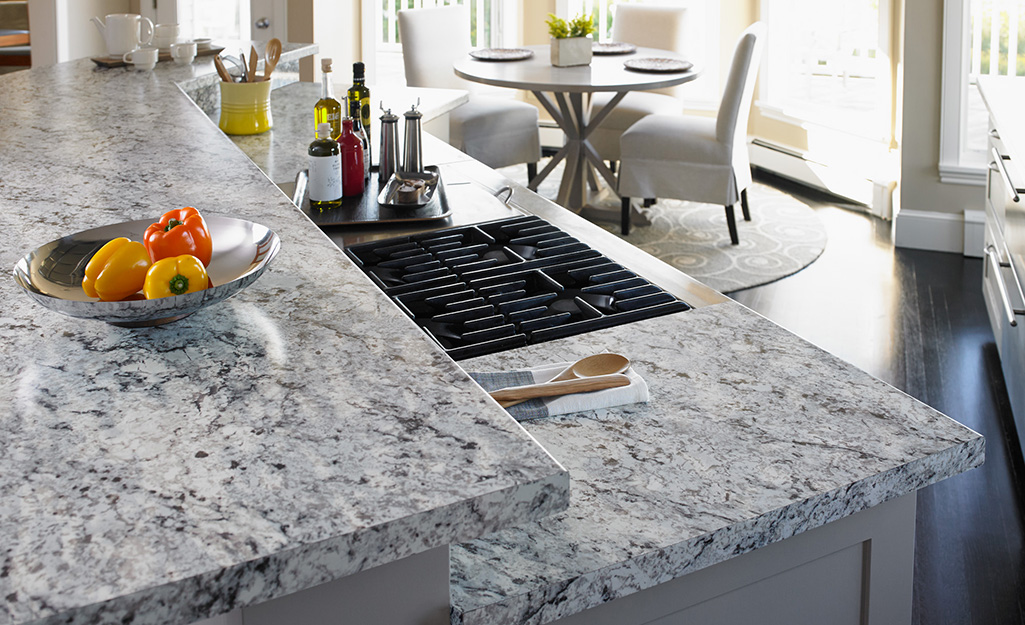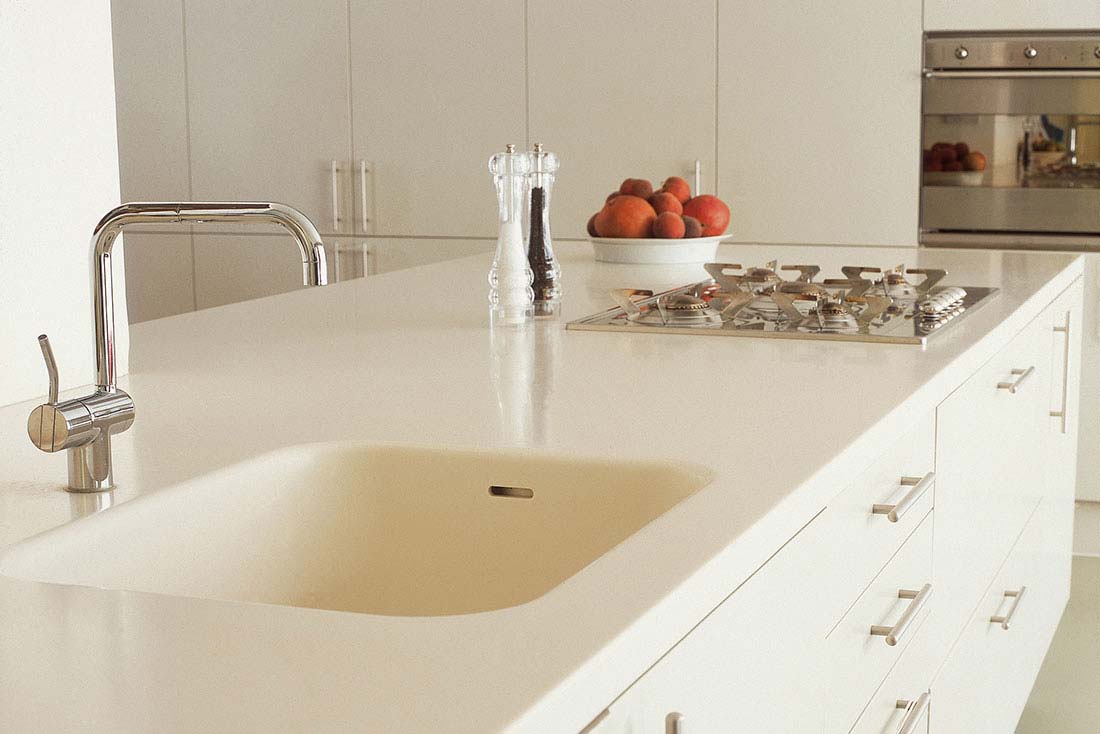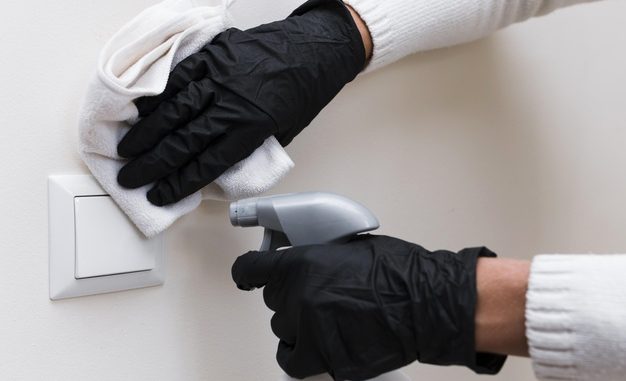If you want to remodel your kitchen, there are a few things to consider. Probably the biggest decision after choosing the devices you want is to choose the countertops!

The large selection can seem overwhelming, but once you've narrowed your material selection down to a few options, you're halfway there. Of course, choosing the right color can lead to some family disagreements. Let's take a look at the most important material types available and discuss the respective advantages.
Engineered stone
Artificial stone is a very hard material, which typically consists of quartz mixed with resin.
- Quartz worktops have a non-porous surface that reduces the risk of germs and bacteria.
- Because of its strength, quartz is low-maintenance and very durable.
- It is easy to clean and does not require sealing. It is also resistant to stains and scratches.
- These worktops are available in different colors and can create unique and beautiful surfaces.

Ceramic tiles
Ceramic tiles are made from clay that is fired at high temperatures and then glazed. The tile used for countertops must be a floor tile and not a wall tile so that it does not crack.
- Ceramic tiles can be adapted to counter areas in many different sizes and shapes.
- They are dirt and heat resistant.
- Individual damaged tiles can easily be replaced without having to replace the entire surface.
- A disadvantage of ceramic tiles is that the surface is uneven and the tiles have to be resealed regularly, which can be time-consuming.
Natural stone
Natural stone slabs are made from many different types of quarries. Colonial Marble offers materials such as granite, marble, limestone and soapstone.
- Granite – These natural worktops are cut from a large slab and look unique and beautiful. They are easy to clean and keep well in a busy kitchen. The surface is smooth and dirt-repellent if a sealant is applied once a year. Granite countertops are difficult to damage and last for many years.
- Marble – If you're looking for a luxurious countertop, marble is the way to go. It's softer than granite, but if you apply a sealant every year, it helps resist scratches and stains. It is also heat resistant.
- Limestone – This stone has a smooth surface that is softer than granite and marble. It has an elegant and timeless look. The porous surface can be easily stained and scratched, but annual sealant applications make it much more resistant to damage. Gentle, non-abrasive cleaning agents must also be used.
- Soapstone – This natural material has a lot of warmth and is often used in country kitchens. It's not as hard as granite, but it's non-porous, scratch and stain resistant, and easy to clean.
Solid surfaces
Worktops with a solid surface are made of either polyester or dense acrylic material. They do not require much maintenance and are not porous, but are easily scratched and are not heat-resistant. They come in a variety of patterns and colors.

Plastic laminate
Plastic laminate worktops are the cheapest option, but can easily scratch and flake and are not heat-resistant.
Wood
Wood worktops are made of dense hardwood such as maple, cherry or oak and are available in different grain types. They look warm and heat-resistant and are an ideal work surface for cutting and preparing food. Wooden surfaces require some maintenance and can also show knife marks. No matter what material you choose, make sure you have a professional measure and install your new kitchen worktops to last for years.




